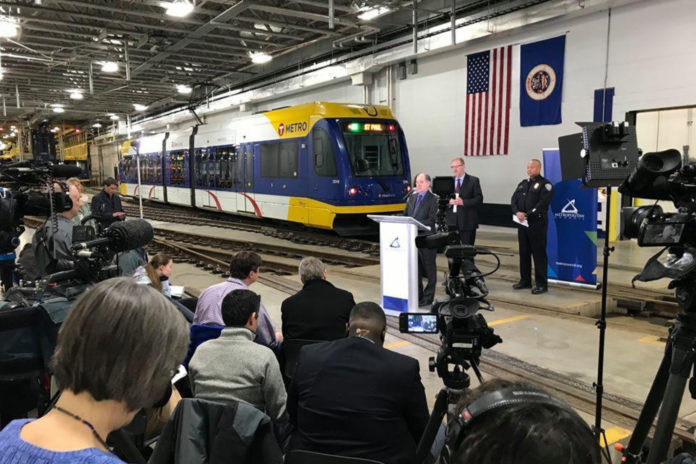
(The Center Square) — Data shows COVID-19 is decimating taxpayer-funded public transportation in Minnesota.
According to Metro Transit, ridership has fallen on all transit services — by as much as 60% on local bus routes, 70% on light rail, and on express bus routes and Northstar Commuter Rail by 95%.
It’s unclear when demand will pick up again. Even after the pandemic, many businesses have already switched to remote work or a hybrid model.
One lawmaker filed a bill seeking to end the Northstar Commuter Rail line, a service running 40 miles from Big Lake to Target Field in downtown Minneapolis, and use that money to rebuild businesses rioters wrecked following the death of George Floyd.
The total Northstar Commuter Rail budget in calendar year 2021 is $11.4 million.
“Since the start of the pandemic, ridership on Northstar has fallen by more than 80%,” Rep. Jon Koznick, R-Lakeville, said in a statement. “However, Northstar has long been a boondoggle that has required taxpayers to throw good money after bad. As lawmakers and stewards of tax dollars, it is time to mothball this project once and for all and instead use these resources to help rebuild communities damaged from riots and civil unrest last summer.”
But if HF 2470 is enacted, Minnesota might have to pay back millions of federal funds earmarked for the project.
Koznick’s proposal would direct the Met Council to ask the feds to waive repayment.
State Rep. Dan Wolgamott, DFL-St. Cloud, called Koznick’s proposal a “divisive political stunt.”
Instead, Wolgamott wants to extend the line 25 miles from Big Lake to his district in St. Cloud.
“Do you think that having the train end in Big Lake versus ending in a regional center that has businesses and colleges and universities — you think that that might affect ridership?” Wolgamott said, Minnesota Public Radio reported. “Northstar never should have stopped in Big Lake in the first place. It needs to be finished and come to St. Cloud.”
Terri Dresen, spokesperson for the Metropolitan Council, told The Center Square lawmakers should give Northstar time to recover from the pandemic
“With the support of federal funds to help address the impacts COVID-19 has had on the service, now is not the time to make any long-term decisions regarding its future,” Dresen said in a statement. “We have made significant adjustments to the service since the pandemic began to reflect the decrease in ridership but we need to allow time for recovery before permanent service changes are made.”
A 2020 Minnesota Department of Transportation study estimated the extension would cost between $36 million and $257 million and take five to seven years.
Most public transit projects end up costing more time and money than initially estimated.

















